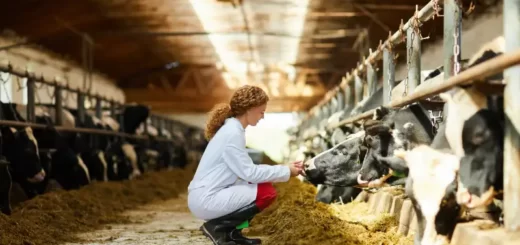The ultimate guide to farm animal management and care in New Zealand
The Ultimate Guide to Farm Animal Management and Care in New Zealand
New Zealand is home to some of the world’s most beautiful landscapes and diverse wildlife. It’s also a country with a strong agricultural industry, which is responsible for producing a significant amount of the world’s food supply.
If you’re thinking about starting a farm in New Zealand, you need to be aware of the animal management and care requirements that are unique to this country. In this guide, we’ll cover everything you need to know about farm animal management and care in New Zealand, including:
The types of animals that are commonly farmed in New Zealand
The housing and husbandry requirements for each type of animal
The biosecurity risks associated with farming animals in New Zealand
The animal welfare requirements that must be met
The environmental impact of farming animals in New Zealand
The types of animals that are commonly farmed in New Zealand
There are a wide variety of animals that are farmed in New Zealand, including:
Cattle: Dairy and beef cattle are the most common type of cattle farmed in New Zealand. Dairy cows are typically kept in large herds and are milked twice a day. Beef cattle are usually kept in smaller herds and are slaughtered at a younger age than dairy cows.
Sheep: Sheep are farmed for their meat and wool. New Zealand is home to over 30 million sheep, which is more than double the human population!
Pigs: Pigs are farmed for their meat. New Zealand pigs are typically kept in large commercial farms.
Chickens: Chickens are farmed for their meat and eggs. New Zealand’s chicken industry is mostly made up of commercial egg-laying operations.
The housing and husbandry requirements for each type of animal
Cattle: Cattle must be provided with shelter that is appropriate for the local climate and weather conditions. Cattle also need access to pasture or hay, and a clean water supply.
Sheep: Sheep must be provided with shelter that is appropriate for the local climate and weather conditions. Sheep also need access to pasture or hay, and a clean water supply.
Pigs: Pigs must be provided with shelter that is appropriate for the local climate and weather conditions. Pigs also need access to pasture or hay, and a clean water supply.
Chickens: Chickens must be provided with shelter that is appropriate for the local climate and weather conditions. Chickens also need access to pasture or hay, and a clean water supply.
The biosecurity risks associated with farming animals in New Zealand
There are a number of biosecurity risks associated with farming animals in New Zealand, including:
Diseases: There is a risk of diseases being spread from animals to humans, and from farm to farm.
Pests and parasites: There is a risk of pests and parasites being spread from animals to humans, and from farm to farm.
Weeds: There is a risk of weeds being spread from animals to humans, and from farm to farm.
The animal welfare requirements that must be met
All animals must be treated humanely and with respect. The Animal Welfare Act 1999 sets out the minimum standards of care that must be met.
The environmental impact of farming animals in New Zealand
Farming animals can have a significant impact on the environment, both positive and negative.
Some of the positive impacts of farming animals include:
Providing food for humans and animals
Improving soil quality
Providing employment opportunities
Some of the negative impacts of farming animals include:
Polluting the air and water
Damaging the environment
Contributing to climate change
So, there you have it – everything you need to know about farm animal management and care in New Zealand. If you’re thinking about starting a farm in New Zealand, make sure you do your research and understand the unique risks and requirements associated with farming animals in this country.





